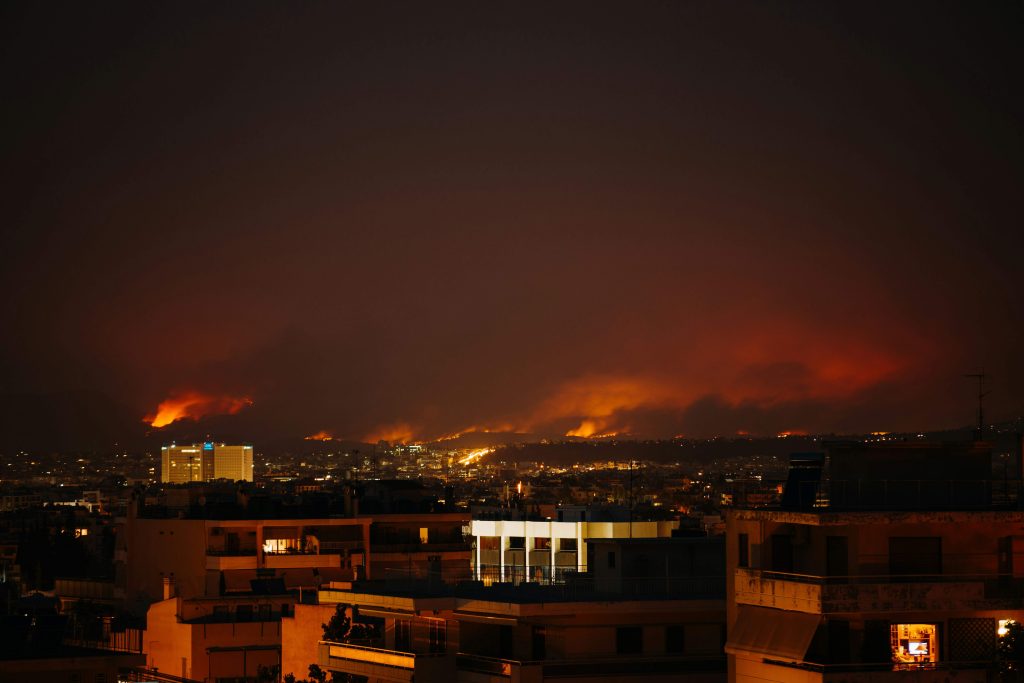- Free Consultation - Call 24/7: (603) 883-4100 What's My Case Worth?
California’s Insurance Crisis: Homeowners Struggling Amidst Wildfire Threats

California is no stranger to devastating wildfires. Each year, blazes sweep through the state, leaving destruction, displacement, and economic hardship in their wake. However, this year, homeowners are facing a dual crisis: not only are wildfires raging, but an increasing number of insurance companies are dropping homeowners’ policies, creating a perilous situation for residents across the state.
The Insurance Exodus
In recent months, major insurance companies have announced they will no longer issue new homeowners’ policies in California. Citing increased risks due to climate change, record-setting wildfire damages, and escalating rebuilding costs, these insurers argue that the financial risks of operating in the state have become untenable.
This move leaves many Californians scrambling to find coverage. Options are becoming increasingly limited for those in high-risk wildfire zones, often forcing residents to rely on the state’s Fair Access to Insurance Requirements (FAIR) Plan. While the FAIR Plan provides a safety net, it is typically more expensive and offers less comprehensive coverage than traditional policies, creating additional financial strain for homeowners.
The Impact on Fire Preparedness
Insurance plays a vital role in disaster preparedness and recovery. A homeowners’ policy covers damages to a property and provides funds for temporary housing, rebuilding, and replacing lost possessions. Without adequate insurance, many homeowners face the grim reality of being unable to recover financially after a wildfire.
The absence of insurance coverage may also discourage homeowners from investing in fire-resistant upgrades, such as metal roofs, fireproof siding, or defensible space around their properties. Though costly upfront, these measures can significantly reduce the risk of fire damage. However, if homeowners lack insurance or fear losing their policies, they may be reluctant to make these investments, further exacerbating the wildfire crisis.
Economic Ripple Effects
The insurance crisis has broader economic implications for California. As insurers exit the market, mortgage lenders grow increasingly concerned. Many lenders require homeowners to carry insurance as a condition of their loans. Without available coverage, homeowners may default on their mortgages, leading to foreclosures and a potential housing market downturn.
Additionally, local governments depend on property taxes, which are directly tied to property values. If homes in high-risk areas lose value due to their inability to secure insurance, municipalities could face budget shortfalls, which could impact public services and infrastructure investment.
Legal and Legislative Responses
California’s government is taking steps to address this growing issue. In July 2023, Insurance Commissioner Ricardo Lara announced plans to expand the state’s FAIR Plan and explore ways to incentivize insurers to remain in the state. Proposals include offering tax breaks to insurers, creating reinsurance pools to spread risk, and requiring companies to continue providing coverage in areas where they underwrite other types of policies.
Consumer advocacy groups are also calling for increased transparency from insurance companies. Critics argue that some insurers overstate wildfire risks or fail to account for mitigation efforts homeowners and communities have implemented. Advocates believe that by establishing clearer guidelines and risk assessments, insurers can be persuaded to return to the market.
What Homeowners Can Do
For homeowners navigating this uncertain landscape, proactive measures are essential:
- Assess Fire Risk: Determine if your property is in a high-risk wildfire zone and take steps to mitigate the risks. These may include creating defensible space, upgrading building materials, and installing fire-resistant landscaping.
- Explore Coverage Options: If your current insurer drops your policy, research alternatives through brokers, surplus line insurers, or the California FAIR Plan. While these options may not be ideal, they can provide essential coverage.
- Document Your Property: Take a detailed inventory of your belongings and record any fire-resistant upgrades. This documentation can be invaluable during claims processes.
- Advocate for Policy Change: Join local or state advocacy efforts to push for legislative solutions that address the insurance crisis and promote wildfire resilience.
Looking Ahead
California’s wildfire season shows no signs of abating, and the insurance exodus highlights the urgent need for systemic solutions. Collaboration between the state government, insurance industry, and residents is critical to ensuring homeowners can protect their properties and recover from disasters.
Sources:
Insurers stop selling home insurance to new customers in CA
Commissioner Lara continues bold insurance reform agenda with landmark FAIR Plan modernization
Insurers brace for losses of up to $20bn from California wildfires
This could be the beginning of the end for fire insurance in California
FAIR Plan Improvements Are on the Way
Consumer Alert on Insurers’ Decision
Some insurers stop issuing new homeowners insurance policies in California
Governor Newsom’s executive order leads to FAIR Plan reforms
CA insurance commissioner reveals plan to tackle insurance crisis, activists find ‘many loopholes’














